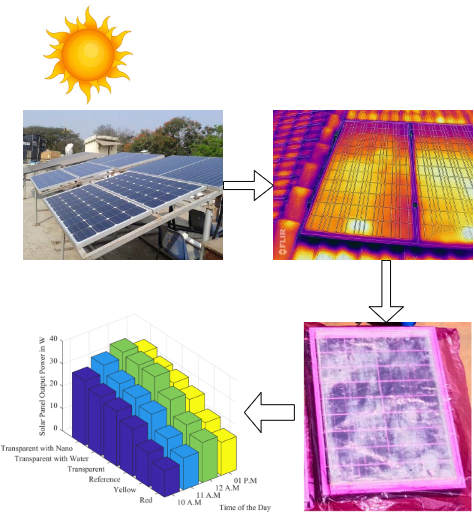
Due to the increasing global energy demand and consequent climate change from burning fossil fuels, researchers are getting more focused on renewable energies as a potential solution to the world's energy problems. Solar energy is a prominent form of sustainable energy. The solar photovoltaic power generation system’s electrical performance is negatively influenced by several factors, including the impact of solar irradiance, incident angle, temperature, dust accumulation on the top of the solar cell, cracks in the solar panel, shadowing, shunt resistance, solar cell materials, load mismatch, maintenance and cleaning schedule, spectral mismatch loss, and cable loss. The direct environmental factors that have the biggest impact on efficiency are the effects of sun irradiance and temperature. This empirical investigation examined the impact of optical filters on the electrical efficiency of a 40W polycrystalline solar PV panel in India while considering real-time ambient conditions. Through the utilization of an optical filter, the solar PV panel's temperature is diminished, hence enhancing the output power of the solar panel. Based on the experimental findings, the utilization of a transparent plexiglass sheet equipped with a coolant system installed on the solar panels leads to a drop in the average operating temperature of the solar PV module by up to 6°C. Additionally, the output power is enhanced by up to 10W in comparison to the reference solar panel’s output performance.
Total file downloads: 37